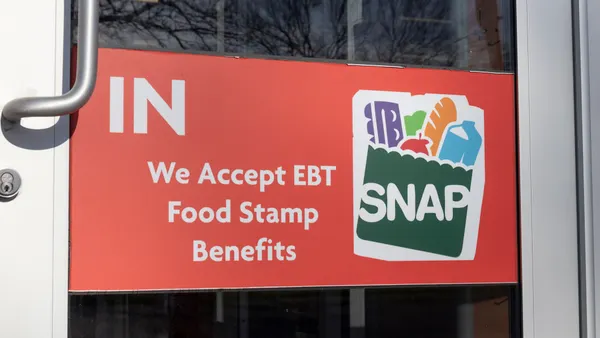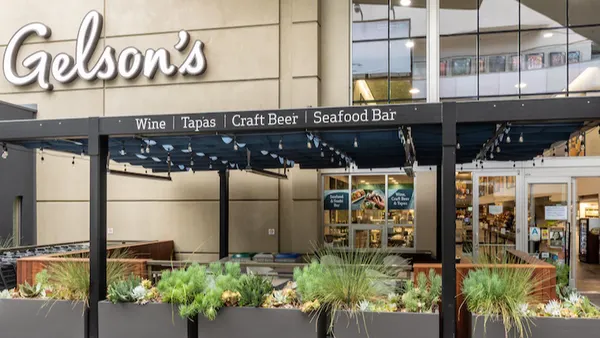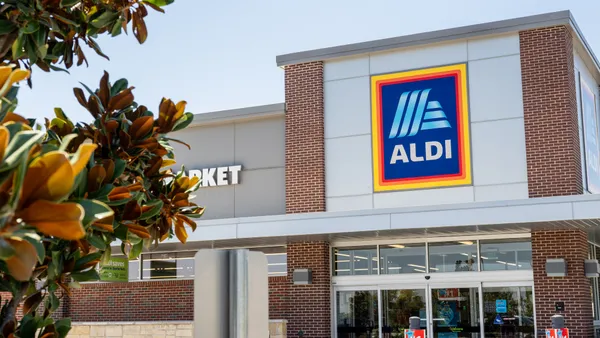Dive Brief:
- A new report from Greenpeace finds that grocery retailers are failing when it comes to reducing their reliance on single-use plastics and efforts to address plastic pollution.
- The report assessed 20 retailers with a significant national or regional presence. Although none received a passing score, those that scored best include Aldi, Kroger, Albertsons, Trader Joe’s and Sprouts Farmers Market.
- According to Greenpeace, highly vertically integrated retailers that emphasize private label, such as Aldi, Trader Joe’s and Costco, have a greater opportunity to make immediate and significant reductions to their plastic footprints.
Dive Insight:
Single-use plastic reduction has been in the spotlight for months as consumer sentiment continues to favor eco initiatives, and Greenpeace’s new report could put even more pressure on retailers to cut back on plastic bags and packaging. Although many companies are making strides to reduce their footprint, more can be done, according to the organization.
Greenpeace claims that none of the 20 surveyed grocers retailers have "ambitious, comprehensive commitments commensurate with the scale of the plastic pollution crisis" to address the problem, but the report does acknowledge that some of the top five have made progress.
While Greenpeace’s evaluation appears thorough, it should be taken with some caution as results were drawn from self-reported responses among participating companies. The top five scorers in the evaluation are the same retailers that have announced recent efforts to reduce plastic packaging in their stores as part of their sustainability efforts.
Aldi has pledged fully sustainable packaging by 2025. Kroger, which was the first national retailer to commit to phasing out single-use plastic bags, is also offering reusable packaging through Loop. Albertsons has introduced eco-friendly private label products and plans to reduce plastic packaging by 2025 as well, and Trader Joe’s is also following suit. Walmart, which was ranked sixth in the Greenpeace report, announced plans earlier this year to reduce plastic packaging for its private label products.
Sprouts is the only one among the top five that hasn’t recently reported a specific plastic reduction effort, but Greenpeace reported that it is engaging its suppliers and experts to develop a clearer plastics policy.
Much of this recent activity can be attributed to a shift in customer attitudes toward plastic and the pollution it causes. Several cities and some states have banned or are working to ban single-use plastics in some form, and a survey from Morning Consult found that 66% of Americans would have a more favorable impression of a company that instituted a new recycling policy to reduce plastic waste.
The report provides a few specific actions for retailers to take to address the plastics problem. First, Greenpeace recommends better transparency from retailers and suggests they track and annually disclose their use of plastic. The report also recommends retailers prioritize reduction with public commitments to phase out single-use plastics. Lastly, Greenpeace calls on retailers to invest in innovation to develop alternative delivery models.









